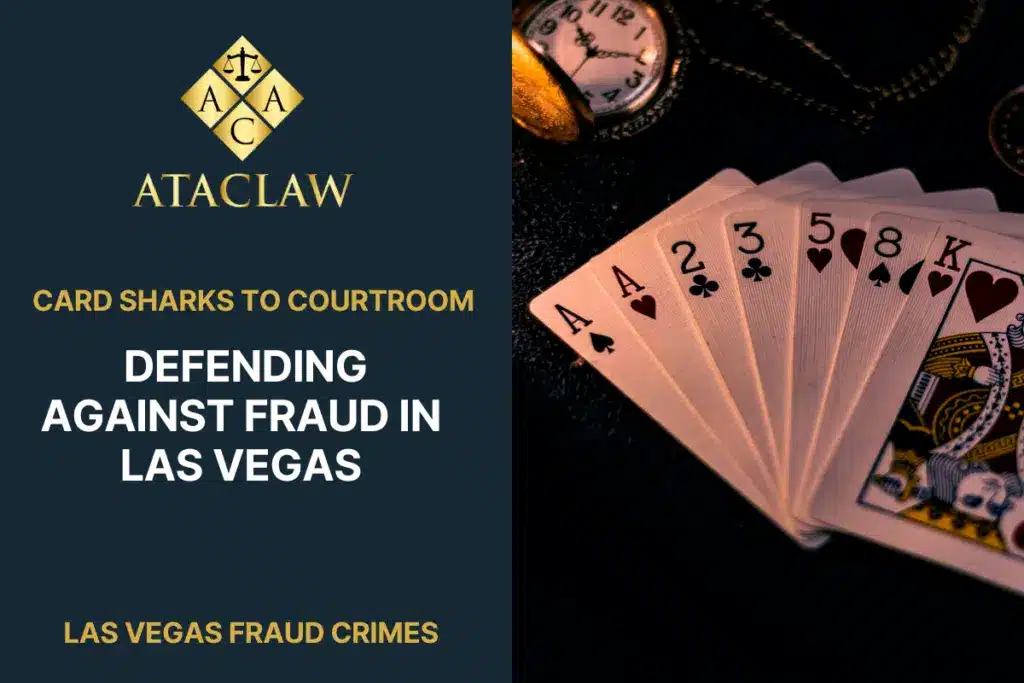In the state of Nevada, the term “habitual criminal” carries significant weight and consequences. At ATAC LAW, we understand the complexities of Nevada’s legal system, especially when it comes to the rigid laws surrounding repeat offenders. Our aim with this blog post is to demystify these laws, offering clarity and guidance to those who find themselves or their loved ones facing such charges.
Nevada’s approach to curbing repeated criminal activity comes in the form of imposing severe additional sentencing, including life imprisonment, for individuals convicted of six or more felony charges. This stern measure aims to deter repeat offenses and reduce recidivism by escalating the penalties for continued criminal conduct.
What Does It Mean to be Classified as a Habitual Criminal in Nevada?
When someone in Nevada finds themselves facing a new felony charge after already having five on their record, the stakes get significantly higher. The term “habitual criminal” starts getting thrown around, and here at ATAC LAW, we believe it’s crucial for you to understand just what that entails.
Diving Deeper Into the Habitual Offender Designation
First and foremost, not every felony will push someone into habitual criminal status. Nevada’s legal system gives a bit of a break on that front for minor drug-related offenses like being high on substances (per NRS 453.411) or having a small amount of drugs for personal use (under NRS 453.336). The exception here is if the amounts are pretty hefty, think 28 grams or more of the most serious drugs (think the heavy-hitters like cocaine or heroin), or 200 grams plus of the less severe stuff. Oh, and GHB and Rohypnol, the so-called “date rape drugs,” they always count, no matter how little you might have.
Now, onto the two levels of penalties, which are colloquially known as “small-scale” and “large-scale” offenses – and these aren’t nicknames you want attached to your name.
- The “small-scale” offenders are those looking at their sixth felony. This lands them in what is known as a category B felony spot, which can mean anything from 5 to 20 years behind bars.
- On the other hand, the “large-scale” offenders have racked up eight felonies, and they’re looking at a category A felony charge. This one’s no joke since it’s either life in prison with the possibility of parole only after a decade or a definite 25 years with a chance of parole after those same 10 years.
Now, getting tagged as a habitual criminal isn’t automatic just because someone hits that magic number five on their felony count. The District Attorney has the option to elevate charges, but even then, a judge has the power to say, “Nope, not going to apply it here.”
It’s worth noting that back before July 2020, it didn’t take much to earn the habitual criminal label – just two prior felonies could get you there. But today, there’s a bit more breathing room, though not much.
What Does It Mean to Be Considered a Habitual Felon in Nevada?
Ever heard the term “habitual felon” and wondered what it’s all about? Well, in Nevada, it’s a pretty serious deal. Under the legal code NRS 207.012, someone gets classified as a habitual felon if they’re convicted of three major felonies. These aren’t your run-of-the-mill misdemeanors; we’re talking about the heavy hitters in the criminal world. Let’s break down what offenses land someone in this category:
- Violent Offenses: This includes crimes that are, frankly, as serious as it gets – murder, actively participating in a deadly duel (yep, it’s still on the books!), initiating a fatal fight, and a few more shockers like poisoning someone with the intention to kill and even perjury leading to someone’s wrongful execution.
- Heinous Crimes Against Persons: Kidnapping, rape, and battery with the aim to commit rape or murder fall here. It’s clear these are acts that seriously harm or intend to harm individuals in a profound way.
- Property and Other Serious Crimes: Think breaking into a place with deadly weapons or even explosives, home invasion with a weapon in hand, first-degree arson, and robbery. Not your everyday petty theft, for sure.
- Exploitive and Organized Crimes: This is where things like human trafficking, child abuse, creating or promoting child pornography, racketeering, and running an involuntary servitude ring come into play. It’s about exploiting others for personal gain.
- Specific Acts with Fatal Outcomes or Intent: Causing death through driving under the influence, hit and run with deadly consequences, and even poisoning food, water, or medicine are in this bucket.
Violating this statute isn’t just a slap on the wrist in Nevada; it lands you with a Category A felony charge. What does that mean for the person? Potentially life in the slammer with or without a chance of parole after ten years, or at the very least, a 25-year sentence with a parole option after a decade. And here’s the kicker: judges can’t just decide to dismiss these charges.
What Defines a Habitual Fraudulent Felon in Nevada?
So, let’s break it down in plain English, without getting unnecessarily fancy about it. In Nevada, there’s something known as a habitual fraudulent felon, as outlined under law NRS 207.014. Now, if someone gets hit with this label, it’s not because they made a one-time oopsie. We’re talking about individuals who’ve made it a bit of a habit to engage in fraudulent activities—not just once, not twice, but three times, and they did it with the intent to hoodwink someone.
Here’s the kicker—these aren’t just any victims. The law specifically highlights cases where the person on the losing end was either not in the best shape physically or mentally, or they were seniors, generally 60 years and older (or 65 years for frauds pre-October 1, 2003). Seems like the law takes a particularly stern view when the deceived party is someone quite vulnerable.
Now, onto the nitty-gritty of what kinds of fraud we’re talking about. It’s not just about telling fibs; these are major league felonies. Here are a few examples that land you in hot water:
- Swindling someone out of their cash through slick tricks or lies (NRS 205.380)
- Forgery, which is basically faking documents or signatures (NRS 205.090)
- Ducking out on paying casino markers, essentially defaulting on what you owe the house (NRS 205.130)
- Insurance fraud, where someone attempts to bamboozle an insurance company for financial gain (NRS 686A.2815)
- Stealing someone’s identity—it’s as serious as it sounds
Breaking NRS 207.014 wraps you with a category B felony charge. If convicted, the individual could be looking at a stretch of 5 to 20 years behind bars. And, in a move that underscores the severity with which this type of crime is viewed, judges don’t have the authority to simply dismiss these charges.
Caught in a situation like this in Nevada? It’s serious business, and seeking expert legal advice from pros like those at ATAC LAW can be a game-changer. They know their way around these complexities and can offer the guidance needed.
For further legal assistance and to discuss your case with an expert, don’t hesitate to contact ATAC LAW.




